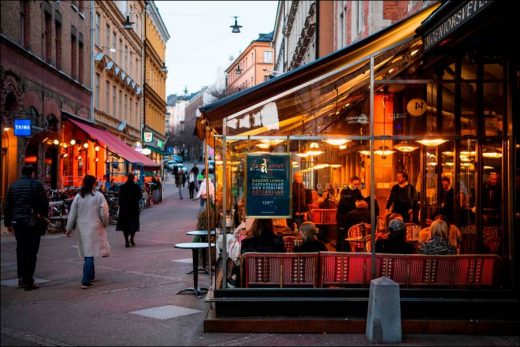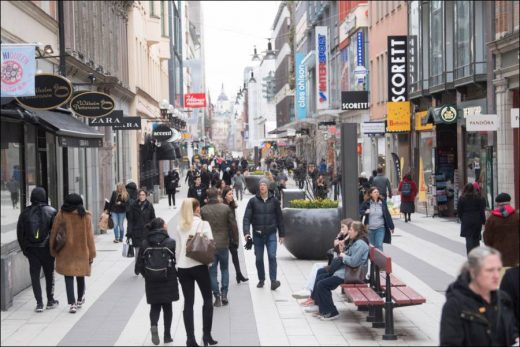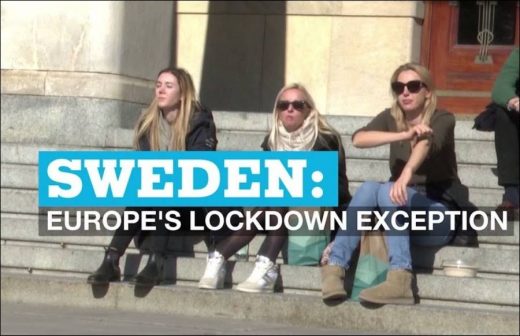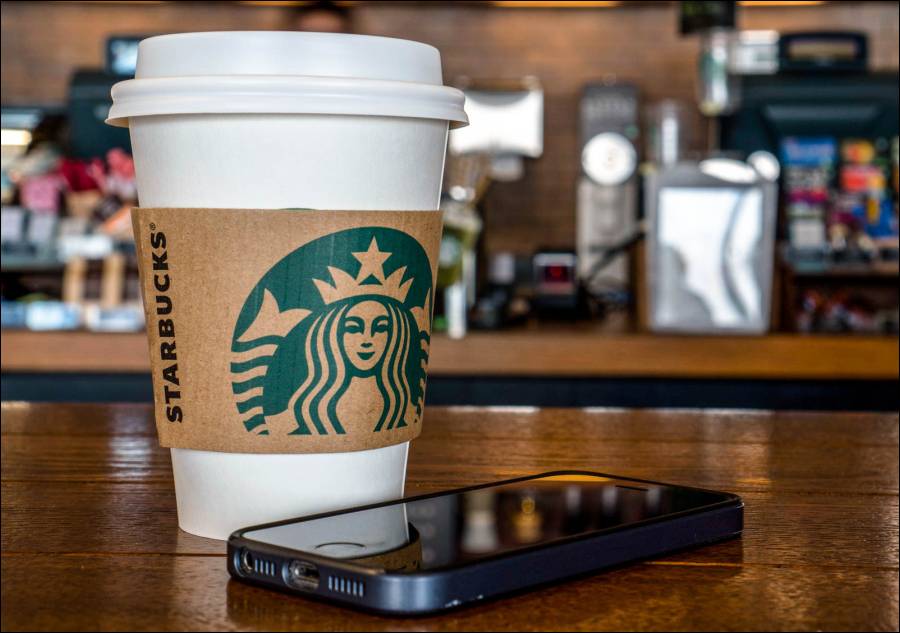Swedish model to fight against coronavirus. Sweden, Norway, Denmark, Finland and Iceland… The descendants of the Vikings are very similar in language, culture and life. In recent days, coronavirus has entered the Scandinavian countries, which are known for their common action and established the Nordic Union years before the European Union. Norway, Denmark, Finland and Iceland take strict precautions against the epidemic, and life continues in Sweden, where there are 5,446 cases and 282 deaths. Now the world is discussing the ‘Swedish model’ in the fight against coronavirus.
The coronavirus outbreak that emerged in Wuhan, China soon took on a global identity. The center of the outbreak is no longer China, but Europe. Especially Italy, Spain and France were the countries most affected by the epidemic. Hundreds of people die every day. Countries took the necessary measures to prevent the outbreak’s balance sheet from becoming more severe. Schools were on holiday, public employees were sent to their homes, gathering in open or closed spaces was set, restaurants and cafes closed. Countries closed the land, air and sea borders against the outside world and put some kind of country in quarantine. Only two countries in Europe behave differently than others in measures. One is Belarus, which takes no precautions, and the other is Sweden, which takes partial measures.
So why Sweden behaves differently than other countries. The rationale stems from the cultural structure of the country. Similar situation is valid in Norway and Denmark. While these two countries took drastic measures against the epidemic, Sweden continued to rely on the common sense of the ‘people. Swedish Prime Minister Stefan Löfven spoke to the nation during the days when the epidemic reached serious levels, ‘Unfortunately, the situation is serious. We will have many losses. Bankruptcies will be experienced at workplaces. And again, many people will say “goodbye” to their loved ones because of this epidemic. Prime Minister Löfven has prepared a kind for those who will be his people in addressing the nation. When everyone in Sweden realized that the situation was getting worse, social awareness arose.
First of all, trust is essential in relations in Scandinavia. The phrase continues to be “promissory note still here”. Since the public is conscious, it accepts the statement without any prohibition. Sweden does not want to put pressure on society and close it home. It thinks the psychology of the people and prevents the formation of panic. Prime Minister Stefan Löfven said, “We adults, we have to act like adults. We shouldn’t spread panic or gossip. No one is alone in the face of this crisis, each person has heavy responsibilities. ”
Of course, coronavirus measures taken in Sweden are not at all. High schools and universities started distance education in the middle of March. Events with more than 50 participants were banned. Lessons continue in kindergarten and primary education. Restaurants and cafes are open. Public institutions and the private sector continue their normal work.
There is a small but important detail. Prime Minister Löfven asked that anybody with the slightest sign of an outbreak stay in his home. He did not leave this in his call for ‘stay at home’. The state guaranteed the salary of everyone who stayed at home. Employees with symptoms of viruses were considered on leave from the first day. In Sweden’s interpretation, “sick leave” is the name of this.
According to the existing rules, if a person makes the disease, he cannot get money on the first day. The disease gets its money from the second day. You do not go to work saying “I am sick” for up to two weeks without a report. If this period is extended, you need to get a report. This rule was stretched during the coronavirus period. When you get sick, you receive your money from the first day, and even if the duration is more than two weeks, the doctor’s report is not requested. Therefore, those with the mildest sympton symptoms do not go to work, do not go out onto the street, and minimized the contact.
Nursery schools and elementary schools are open, but was 60-70 percent in class. Parents do not send their children for precautionary purposes. Again, when there is the slightest symptom in a child, the school administration calls the parent to promptly take the child away from school. There is a similar rarity in public transport. There is a 70 percent reduction in occupancy in subways, trains and buses. Restaurants and cafes are open but there is a shortage of customers. There is no official ban on the state, but there is a ban on the public.
People go to the streets, go to the parks, shop. However, it makes the distance special. In fact, distance relationship in Scandinavia is not a new concept. When you get on a bus or train, you sit on the empty seat, not the first place you see. It happens if sitting on a bus side by side but all seats are full. Neighborhood relations are already at the level of ‘hello, hello’. The concept of ‘hospitality’ seen in the Middle Eastern culture is not found in Scandinavia. The first thing that young people who turn 18 years old do is get a driver’s license and leave home. Since it is a society that is accustomed to living individually, it is aware of its responsibilities.
When the state’s support is added to public consciousness, the ban-free coronavirus days continue in Sweden. Companies say to their employees: “You can work from home as well.” At large companies in the capital, Stockholm, the proportion of home workers has reached at least 90 percent. With its technical workforce and infrastructure in Sweden, the working culture has been a strong ground for flexible and remote working for a long time.
However, the approach of 300 people who lost their lives due to coronavirus in Sweden causes questioning of the measures taken. Epidemiologist Dr. at the Karolinska Institute. “I am inclined to listen to public advice, but I am not sure if this will be enough in such critical situations,”
Emma Frans explained. Andreas Hatzigeorgiou, President of the Stockholm Chamber of Commerce, said, “While we are fighting against the damage caused by the virus to the health of the people, we must also strive to minimize the economic damage of the epidemic. “The business community in the country finds the Swedish government’s approach to the crisis more logical than many other countries.” The government aims to overcome the coronavirus crisis by relying on the social responsibility of the people, despite the fact that Sweden’s method is similar to ‘Russian roulette’.
Visits: 163





